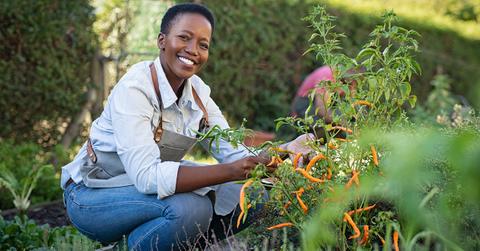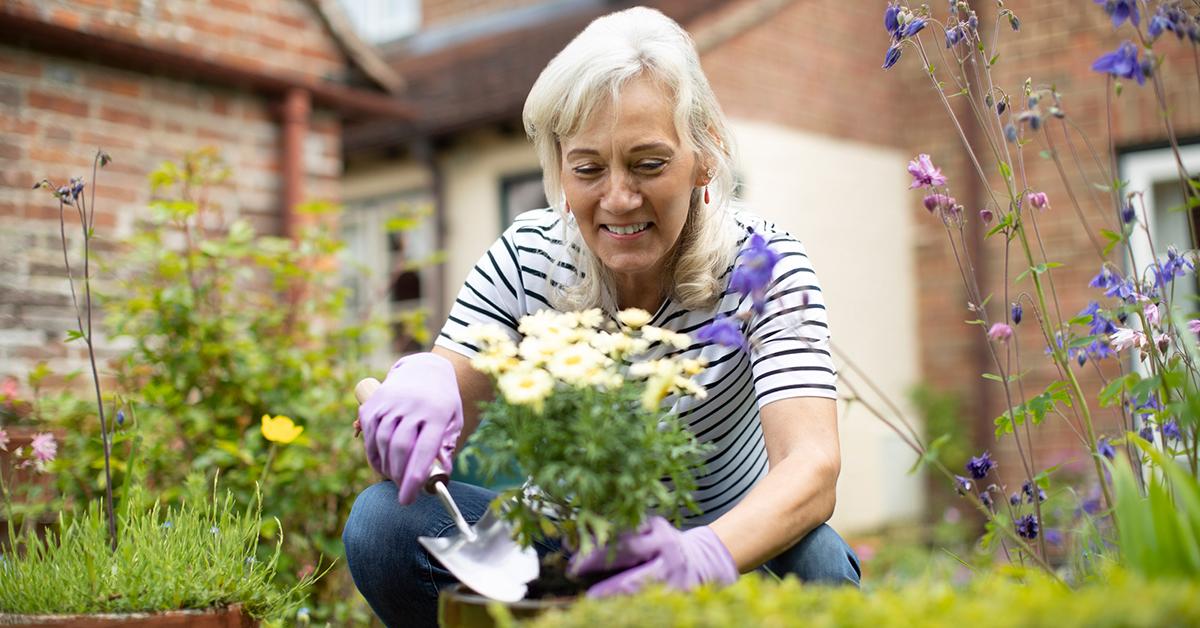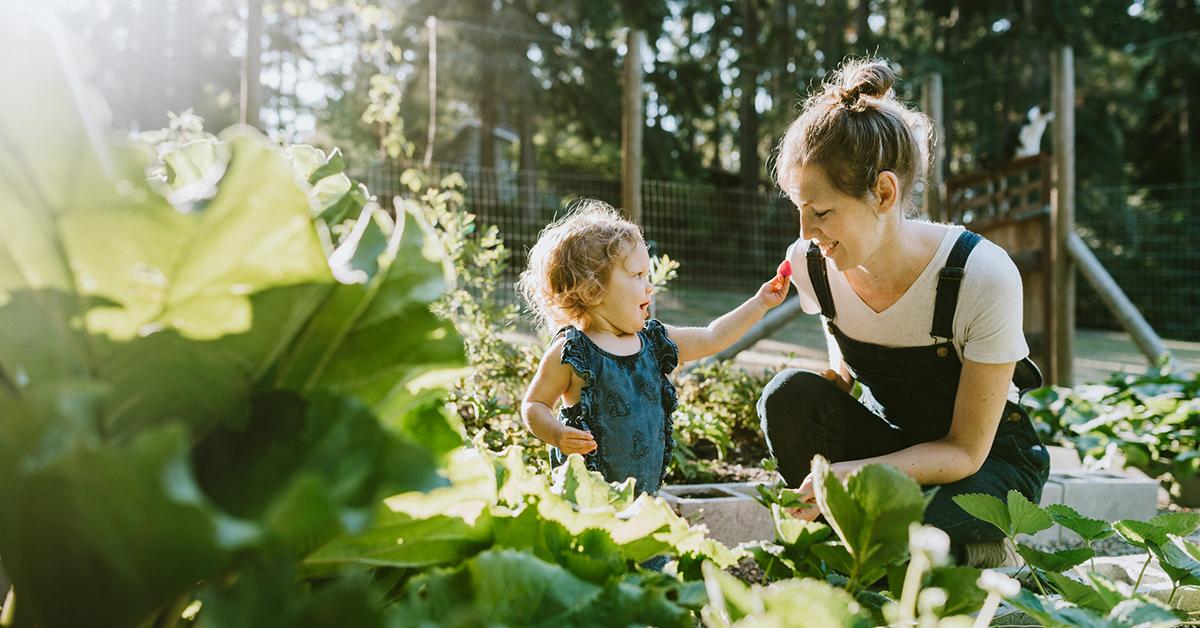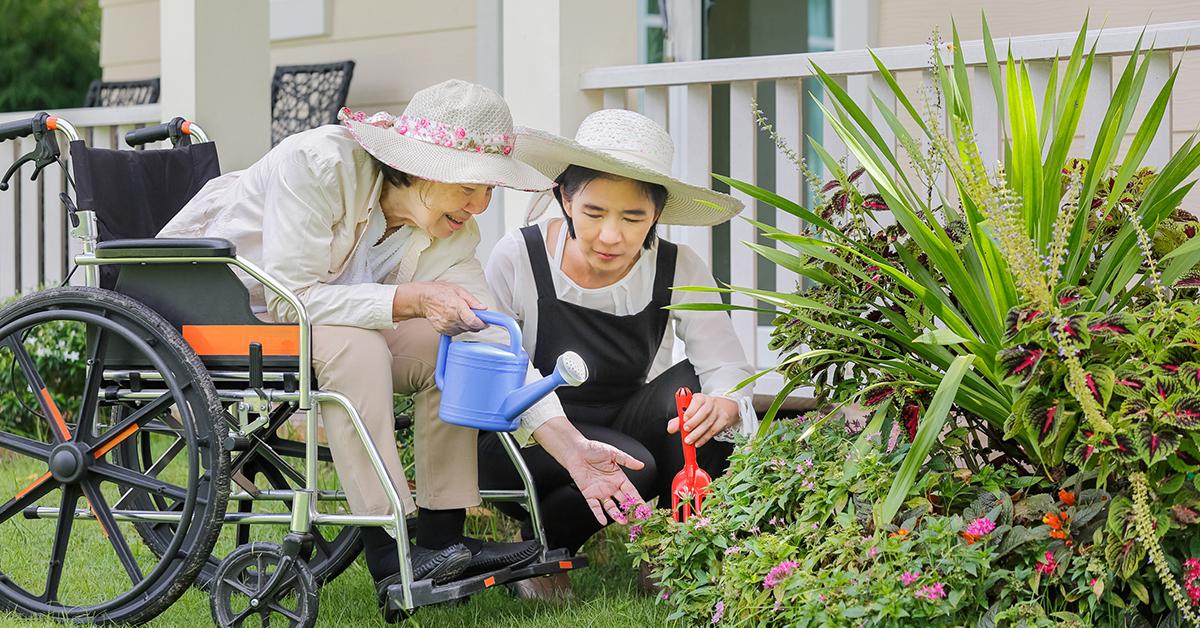12 Reasons Gardening Is Good for You
Updated Aug. 21 2020, 12:01 p.m. ET

Gardening is good for you. No, seriously. There has been ample research that conclusively surmises that gardening is good for the mind, body, and soul — not just for your yard.
Whether you’re cultivating a kitchen scrap garden inside or laying the foundation for a high-yielding vegetable garden in your backyard, the act of working with plants, vegetables, fruits, and flowers can provide a lot of health benefits. In fact, gardening might be the key to an overall healthier lifestyle and for warding off diseases and illnesses, too.
On perhaps the simplest level, gardening is a hands-on hobby that gives you something to look forward to. Gardening can also give you a sense of purpose, as you are literally responsible for keeping things alive and helping them grow. Once those flowers, plants, and produce grow, you may also feel a strong feeling of achievement or reward. After all, you cultivated these from nothing to something extraordinary!
It’s also a relatively active hobby, though you might not think of it as such. In fact, an Australian study found gardening “to be more effective than walking, education, or maintaining alcohol intake at moderate levels in protecting against dementia.”
Gardening doesn’t just decrease your risk against dementia; it also reduces the risk of many other health complications as well and can also do wonders for your mental health.
Keep reading for 12 reasons why gardening is good for you.
Why is gardening good for your health?

As mentioned above, gardening is one of the most effective ways to protect against dementia — even more so than other activities like walking. But gardening also has other proven benefits, like reducing the risk of cardiovascular disease, diabetes, cancers of the breast and/or colon, and mental health issues.
In the way of reducing your risk of cardiovascular disease, gardening has been found to be specifically good for the heart. According to UNC Health internal medicine Robert Hutchins, MD, MPH, who told Health Talk, “There are physical benefits from doing the manual labor of gardening. It’s hard work to garden, and it provides some cardiovascular benefit.” Some of those cardiovascular benefits include burning calories and building up the strength of your heart.
Because gardening is such a hands-on — literally — activity, it also builds up the strengths of your hands. The handiwork that is required for gardening keeps hands and fingers strong and able for longer.
And because most gardening takes you outdoors, it’s also good for your health in that it can increase your exposure to natural vitamin D. More vitamin D increases your calcium levels, too, providing health benefits to your mood, as well as your bones and immune system.
If you’re growing produce in your garden, that could also mean an added health benefit, as growing your own food ensures that you are eating in season and locally grown. And because you were responsible for growing it yourself, you don’t have to stress over organic labels and pesticides. You already know what went into the treatment of your food, so really, it’s the healthiest possible option.
Gardening also has proven benefits specifically for children. Besides educating them on food and growth and giving them a sense of purpose, one study found that early exposure to dirt can reduce allergies and risk for autoimmune diseases.
Is gardening good for your mental health?

While gardening has many physical benefits, it also benefits your mental health. After all, science has proven that people are happier in nature. In fact, “a decrease in contact with nature” can result in health and behavioral problems for kids, which is being called “nature-deficit disorder.” And it’s not just a blanket statement. Science has proven that when people inhale M.vaccae, a bacteria that lives in the soil, it increases serotonin levels and reduces anxiety, actually improving your mood and making you feel happier.
Gardening has also been proven to reduce the symptoms associated with stress, depression, and anxiety. In addition to curbing depression, anxiety, and stress, the same study found that gardening also “increases in life satisfaction, quality of life, and sense of community.” In fact, daily contact with nature has been found to have “a long-lasting deep impact on health, including on depression and anxiety symptoms.”
In addition to reducing “incidents of stress,” regular gardening also improves a person’s mood and increases their feelings of self-esteem. Though self-esteem is not a mental health issue, certainly an increased self-esteem can help people feel better about themselves and work through dark times related to mental health.
Is gardening good for your back?

While gardening has numerous physical and mental health benefits, it’s not the best activity for people with back problems. In fact, hunching over to garden, weed, or till could result in some back pain. If you struggle with back pain but want to start (or continue) gardening, invest in a foam kneeling pad or knee pads, and take time to stretch before gardening.
Is gardening good for your immune system?

Because most gardening takes you outdoors, it’s also good for your health in that it can increase your exposure to natural vitamin D. More vitamin D increases your calcium levels, too, providing health benefits to your mood, as well as your bones and immune system.
Gardening can also help you sleep better, which of course means good things for your immune system. If you’re coming down with a cold or other ailment, getting a good night’s rest can allow your immune system the time it needs to recover quickly.
Is gardening good for your soul?

In terms of research and data, it’s difficult to assess whether or not something is scientifically “good for your soul.” However, to make the case that yes, gardening is good for your soul, you can look to some of the overall mental health and spiritual benefits of gardening.
First of all, being in nature makes you happier. Gardening has also been proven to improve mood, stabilize feelings of anxiety and depression, and overall, reduce feelings of stress and stress incidents. Gardening can fill a person with a sense of purpose and achievement and is a very high reward. Also, being in nature, we tend to feel more of a connection to our spirituality.
Combine all of these beautiful health benefits together and one could definitely argue that indeed, gardening is good for the soul.